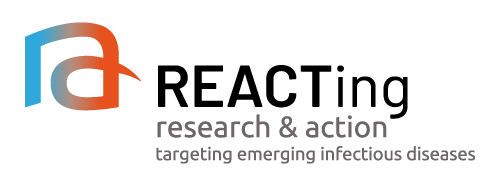Clinical Research
Clinical trials for Covid-19:
Solidarity-Plus & Discovery
The primary goal of both trials is to gather scientific evidence on the treatment options for Covid-19 that appear most promising and whose experimental use in these patients consequently meets with greater consensus in the medical community and specialised scientific groups. However, the Discovery study protocol is based on the WHO core protocol and is a complementary and more detailed evaluation of the Solidarity Protocol, which in turn pursues the goal of extreme procedural simplicity to facilitate a globally comprehensive international collaboration in the context of a pandemic emergency.
With a view to dissemination to national hospitals, on 24 April 2020, a meeting was held on the implementation project of these clinical trials, which was attended by the Minister of Health, Dr. Marta Temido, AICIB, Infarmed and all hospital administrations of institutions with areas dedicated to Covid-19 at national level.
Solidarity-Plus
Solidarity-Plus is an international, adaptive clinical trial to investigate an effective treatment for COVID-19 and is sponsored by the World Health Organisation and co-sponsored by national partners, in Portugal by AICIB. It is one of the largest international randomised clinical trials for COVID-19 treatments, having recruited to date 14,200 participants in 600 hospitals in over 52 countries.
Solidarity aims to evaluate the effect of medication on three important outcomes in patients with COVID-19: mortality, need for assisted ventilation and length of hospital stay. The clinical trial compares treatment options, in addition to and controlled by standard care therapy, to assess their relative effectiveness in relation to COVID-19.
Initially taking place only at Curry Cabral Hospital, after protocol amendments, that included the modification of the investigational medicinal products, the clinical trial is re-starting, now with the name Solidarity-Plus, and the sites Guimarães Hospital, Douro and Vouga Hospital – São Sebastião Hospital and Baixo Vouga- Aveiro Hospital, were additionally included.
On 15 October 2020, interim results from Solidarity were published, in which the 4 treatments evaluated, hydroxychloroquine, lopinavir / ritonavir, lopinavir / ritonavir plus interferon β 1a, and remdesivir were found to have little or no effect on overall mortality, ventilator onset and length of stay in hospitalised patients. However, the clinical trial continued to obtain more robust data with the investigational medicinal product remdesivir.
On 11 August 2021, WHO announced the new phase of the Solidarity trial, now titled Solidarity-Plus, which began the evaluation of three new drugs in patients hospitalized with COVID-19. The new investigational medicinal products – artesunate, imatinib and infliximab – were selected by an independent panel of experts based on their potential to reduce mortality in patients hospitalized with COVID-19.
For more information, you can visit:
WHO COVID-19 Solidarity Therapeutics Trial
WHO’s Solidarity clinical trial enters a new phase with three new candidate drugs



Discovery
With the spread of COVID-19 in Europe, INSERM established a multidisciplinary team to develop a multi-arm randomised controlled clinical trial called DisCoVeRy. The aim of the study is to evaluate the clinical efficacy and safety of different existing and re-used investigational drugs compared to baseline therapy in hospitalised patients with COVID-19.
The primary endpoint of the trial is clinical status at Day 15 on a 7-point ordinal scale of the WHO Core Protocol (V.3.0, March 3, 2020). This study involves patients hospitalised in conventional services or intensive care medicine units of academic or non-academic hospitals across Europe. A sample size of 3100 patients was the initial target. This clinical trial started in France on 22 March 2020.
Since 5 April 2020, DisCoVeRy has been a complementary clinical trial to the Solidarity trial, conducted by WHO in Europe and worldwide.
The approved sites where the trial takes place in Portugal are: Centro Hospitalar Universitário São João, CHULN-Hospital de Santa Maria and Hospital Lusíadas-Cascais, through the national coordination of AICIB.
In the initial phase, the trial recruited 1305 participants globally, including 36 in Portugal.
The second phase of the clinical trial was resumed in 2021, with the aim of testing the efficacy of the drug developed by AstraZeneca AZD7442, which is a combination of two monoclonal antibodies derived from the convalescent plasma of two patients infected with SARS-CoV-2. These antibodies, directed to the S protein of the virus, were selected for their ability to neutralize it. Additionally, these antibodies, which recognize two distinct parts of the S protein, are less likely to be affected by mutations in this protein. The overall recruitment goal for this second phase of the trial is 1240 participants.
Launch of a European clinical trial against COVID-19
Inserm and AstraZeneca join forces to test the efficacy of monoclonal antibody combination AZD7442 on Covid-19 in the European DisCoVeRy trial